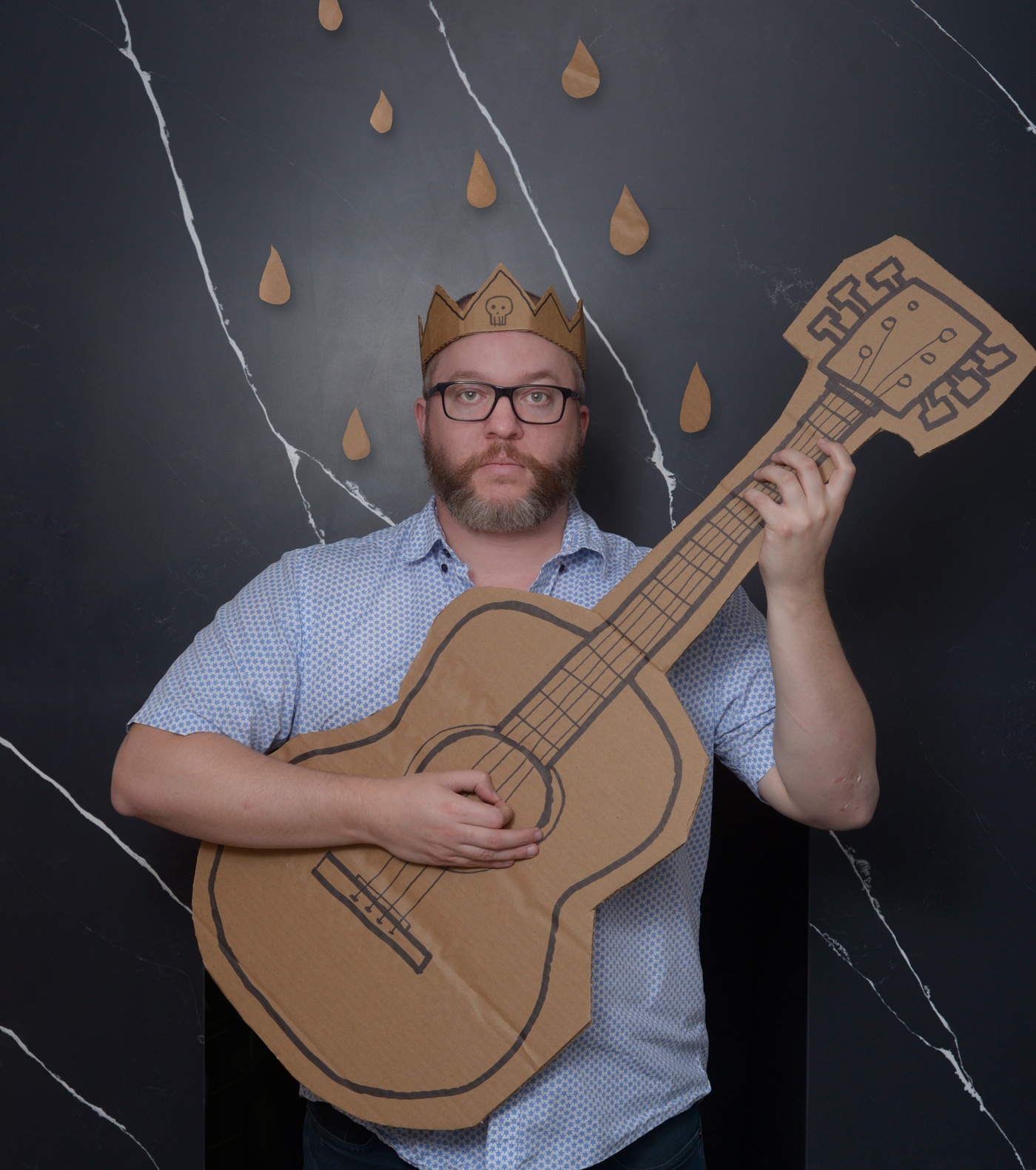Music Spotlight: Radical Face
Singer-songwriter + producer Ben Cooper, aka the mastermind behind Radical Face, is taking the project in a poignant new direction with his latest EP Therapy—released last month. As the title suggests, the LA-based musician expresses his self-discoveries + growth from his time in therapy, including themes of doubt, guilt, sadness, acceptance, and all things that come along with being human. The six tracks take a simpler, more direct form—a shift from the narrative-style writing found on his vast body of previous work dating back to Ghost in 2007. Radical Face’s soft vocals + raw lyrics create a beautiful soundscape evocative of the self-help guide we’ve been waiting for. We dug into Therapy with Ben.
photo by Roy Barry
Asymmetric Magazine: Congrats on your recent EP release! Can you tell us all about Therapy?
Ben Cooper: Thank you. And yeah, sure. Really, this whole EP came about in two parts. Originally, I was going to call it Verse/Chorus, because I wanted to try writing songs with a more typical format again. It had been so long since I thought about music that way that it sounded like a fun challenge. But when I sat down to write the words, I only had one major thought on my mind. I have been seeing a therapist every week for the past two years. 2015 through 2017 were really tough years, and it was the first time in my life that all my coping mechanisms failed me. Writing songs wasn’t enough. I was losing my sense of humor, and I couldn’t find my way out of it. So, I got help. It’s one of the best things I’ve ever done. But it was all I was thinking about, so when it came time to add words to these songs, I decided to write about what I was learning in therapy, and what I was making peace with.
it was the first time in my life that all my coping mechanisms failed me.
AM: What was the most challenging part of creating the EP?
BC: Well, in a lot of ways, I was starting over. I didn’t have a lot of equipment for this collection, and I was just working in the living room of my new apartment. So, just figuring out how to work in the space was tricky at first. But after that, I’d say it was the words. I don’t like writing specifically from my perspective very much. I think that’s why I always choose stories. It makes writing about an experience easier when it feels like it happened to someone else.
AM: Aside from the words, how does it compare to your previous work?
BC: To me, it all feels smaller and simpler. There isn’t a lot of context, and the song structures don’t take any getting used to. It’s more direct than I normally write in all regards. I wondered if that would feel better or worse, but I’ve come to the conclusion that it’s neither—just different.
AM: What’s the story behind the cover art?
BC: I wanted a picture that described about how I felt when I was first working with a therapist. I felt beat down in a way I never had before, despite being in the gentlest situation I’d ever lived in. So, I chose a soft room and a lot of blood to get that across.
AM: How do you like to describe your sound?
BC: I usually just tell people I like to make moody music. I think about mood more than anything in the hopes that it will have a specific feel when I am done.
AM: Are there any consistent themes and moods you find yourself pursuing?
BC: I like all kinds of moods; it’s not a specific one, but it’s what I search for the most. I only really write when I don’t feel well. I sometimes produce and record music while I’m happy, but the song writing almost always starts from trying to understand what’s beating my brain. I am more somber in music than I am as a person because of it. But I think the most constant theme I work around is what it means to be human, flaws and all, and how being damaged is not the same as being useless.
being damaged is not the same as being useless.
AM: Where is one place that you feel completely in touch with your creative self and your music?
BC: When I’m alone and usually at night or in nature. Those are the two most common times that everything just makes sense for a little while, and I can hear my thoughts really clearly.
photo by Roy Barry
AM: What other musicians are you currently listening to?
BC: Lately, I have been listening to a lot of Debussy, Big Thief, Ravel, Sharon Van Etten, and this giant ambient playlist I’ve compiled.
AM: What can we expect to hear from you next?
BC: I’m already recording my next full length now, called Into The Woods. I also have a special anniversary version of Ghost that I am about to release, and I have been working on more score-style music and producing artists for an instrumental label I help run—Bear Machine Records. It’s going to be a very busy year, but for the first time in a while, I’m really excited about where life is headed.
// listen to Therapy:
// listen to more Radical Face on Spotify.






